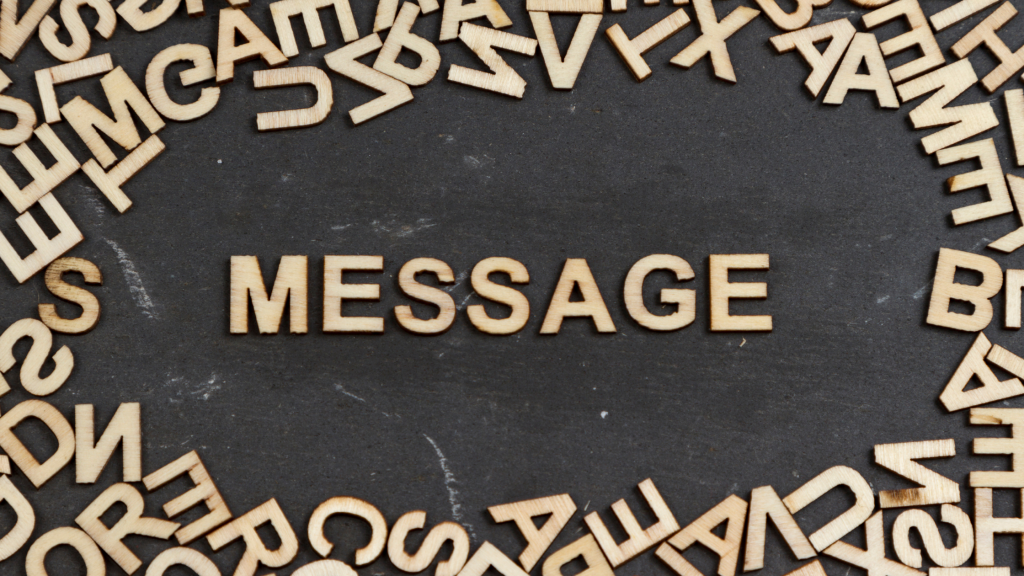Practice English or Spanish with AI here
Message is the correct spelling of the word that means a communication that is sent by phone, email, or any other written or spoken means. Messege is an incorrect spelling of message.
Is Messege a word?
No, messege is not a word in English. It is a commonly misspelled version of the word “message”.
People tend to misspell this word because the “a” sound doesn’t sound like the typical “a” sounds in English. (cat, bat, father, umbrella)
The “a” in message is pronounced /i/ like similar words postage, luggage, and baggage.
What does message mean?
A message is a form of communication that you often give indirectly to someone.
There are many ways that you can give a message to someone.
Here are some examples of types of messages:
Written note, you tell a friend to tell another friend, on a phone, an email, a notice board, an audio recording, a smoke signal, a voicemail.
Here are some examples of messages in English:
Can you contact me as soon as possible, I need your help.
Peter, Call me when you get home.
Tell John that his package arrived.
Let me know if you need anything.
Here are some extra questions that you might have about this topic:
- What are the origins of the different spellings of “message”? The different spellings of “message” likely stem from the word’s French origins. Words that transition from one language to another often undergo slight variations in spelling and pronunciation. The misspelling “messege” is probably a result of people trying to spell the word phonetically.
- Are there any other words that are commonly misspelled in a similar way to “message”?
Yes! Words with non-standard vowel sounds are frequently prone to misspelling. Here are a few examples:
- Separate: The “a” in separate sounds more like “i”, leading to errors like “seperate”.
- Wednesday: The “d” is silent, often causing misspellings.
- Definitely: People often misplace the “i” and the “e”.
- What are some other tips for remembering the correct spelling of words?
Here are some general tips:
- Use mnemonics: Create silly phrases or acronyms to help you remember the order of letters (e.g., “necessary” – Never Eat Cake, Eat Salad Sandwiches And Remain Young)
- Break it down: Divide words into smaller syllables, making them easier to spell.
- Visualize: Picture the word in your mind; the more vivid the image, the better your memory of it will be.
- Practice: Frequent writing and reading help cement correct spellings in your mind.
- 10 Words or Phrases “To Make Her Feel Special” - October 16, 2024
- Synonym Generator - September 11, 2024
- [BrutallyHonest] Langua AI Review – Can you learn a language with AI? - April 23, 2024


